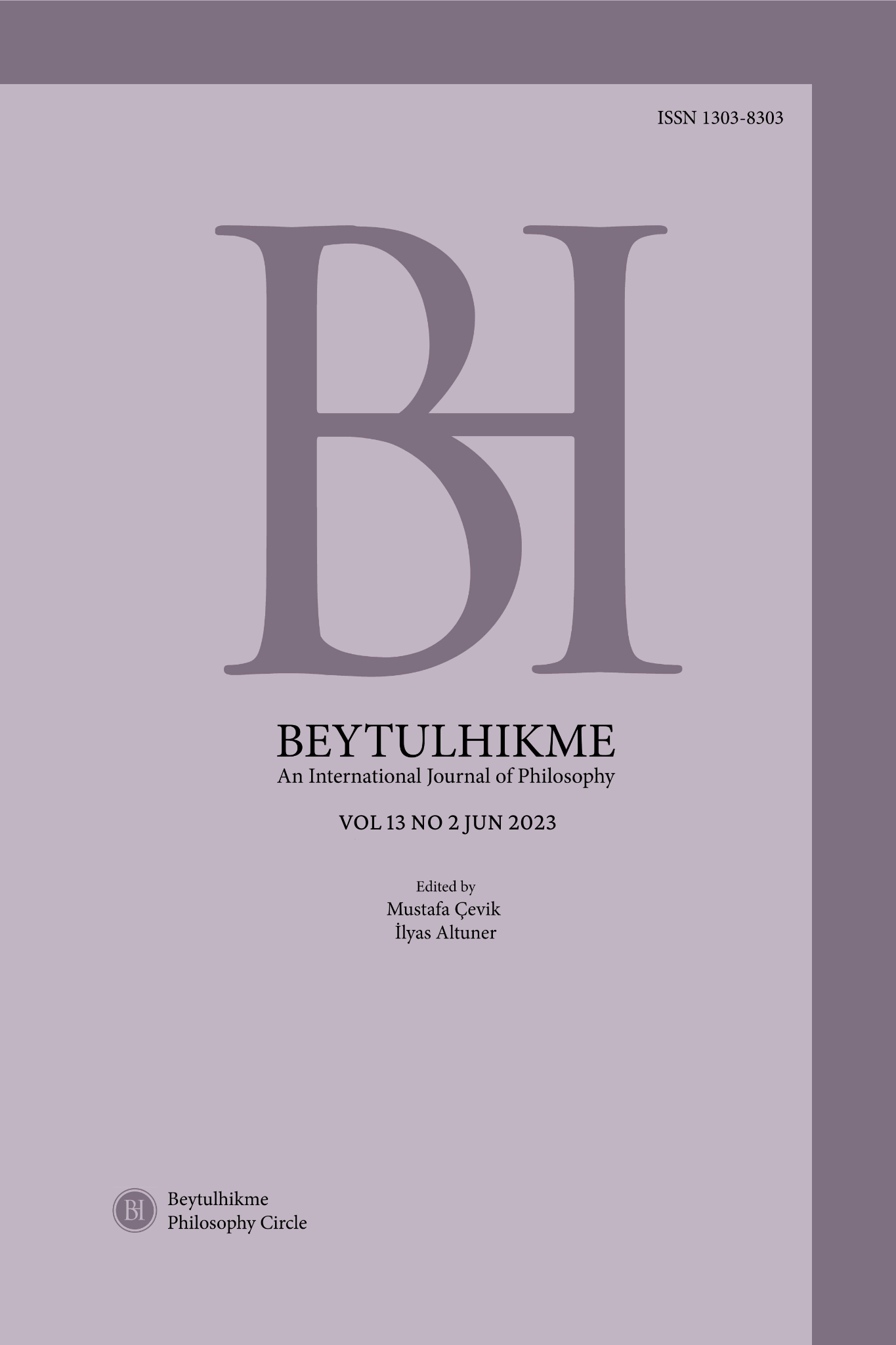Author :
Abstract
Klasik Yunan düşüncesinde felsefi birer mefhum biçiminde yerleşik hale gelmeden önce ananevi değerlere işaret eden kimi kelimeler zamanla cesamet kazanmış, çok boyutlu bir görünüme kavuşmuştur. Nitekim Yunan düşüncesinde pek çok mefhum bir “rekabet” (agōn) ortamı içinde rakibi olan farklı mefhum namzetleriyle giriştiği başa baş bir mücadelenin sonucunda nihai makamlarına oturmuştur. Bu süreçte yoldaşı olan mefhumlarla zamanı geldiğinde yolunu ayırarak Yunan insanının sahip olması gereken temel “meziyetler” (aretai) olarak Klasik Yunan düşüncesindeki hâkim konumlarına yerleşmişlerdir. Bu sürecin bir neticesi olarak, sōphrosynē’nin tam olarak hangi meziyeti, hangi duyulara hitap eden hazların denetlenmesini, bilgeliğin filizlenme zemini olarak hangi türden bir ahengi ifade ettiği Klasik Yunan düşüncesinin temel sorunlarından biri olarak Antik Çağ’da dahi tartışma konusu edilmiştir. Bu nedenle sōphrosynē’nin farklı bağlamlarda ifade ettiği meziyetin yerinde bir şekilde karşılanması hususu bir tercüme probleminden öte düşünce ve yaşama kültürü tarihine ilişkin bir muğlaklık sorunu oluşturuyor. Bu makalede, sōphrosynē’yi tarihi süreç içinde takip ederek genelde onun gibi atıf alanı geniş mefhumların tek bir bağlamdan anlaşılamayacağını, bu tip mefhumları anlamak üzere bağlamlar üstü bütüncül bir bakışa ihtiyacımız olduğunu, ancak bu takibatı özelde de Platon’un Kharmidēs diyaloğuna uygulayarak bir kelimeye felsefi bir kimlik kazandırma yolundaki mefhumlaştırma stratejilerininin bir iskeletini idrak etmemizi mümkün kılacağını ortaya koymaya çalışacağım.
Keywords
Abstract
In Classical Greek thought, some words pointing to traditional values before they became current as philosophical concepts, gained in size over time and attained a multidimensional appearance. Many concepts in Greek thought settled in their final positions as a result of a head-to-head contest with different prospective concepts in an environment of “competition” (agōn). In this process, they separated their way with their fellow concepts when the time came and settled in their dominant position in Classical Greek thought as the basic “virtues” (aretai) that the Greek people should have. As a result of this process, it was discussed even in Antiquity as one of the main problems of Classical Greek thought, exactly which virtue of sōphrosynē, the control of pleasures appealing to the senses, what kind of harmony as the germination ground of wisdom. For this reason, the fact that sōphrosynē's virtue expressed in different contexts is appropriately met creates a problem of ambiguity regarding the history of thought and living culture rather than a translation problem. In this article, it is stated that by following sōphrosynē in the historical process, notions with a wide range of references such as it cannot be understood from a single context, that we need a holistic view over contexts to understand such notions, but that this follow-up is specifically applied to Plato's Charmides to demonstrate that it will enable us to comprehend a skeleton of conceptualization strategies on the way to refine the philosophical identity of it.





